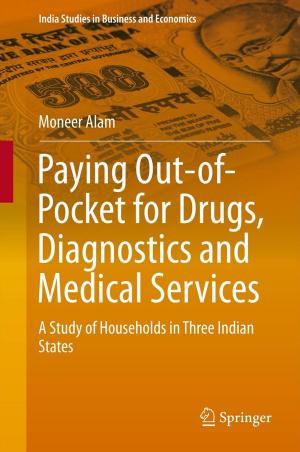Shifting Paradigms in Public Health
From Holism to Individualism
Nonfiction, Health & Well Being, Medical, Reference, Ethics, Public Health| Author: | Vijay Kumar Yadavendu | ISBN: | 9788132216445 |
| Publisher: | Springer India | Publication: | December 9, 2013 |
| Imprint: | Springer | Language: | English |
| Author: | Vijay Kumar Yadavendu |
| ISBN: | 9788132216445 |
| Publisher: | Springer India |
| Publication: | December 9, 2013 |
| Imprint: | Springer |
| Language: | English |
This transdisciplinary volume outlines the development of public health paradigms across the ages in a global context and argues that public health has seemingly lost its raison d’être, that is, a population perspective. The older, philosophical approach in public health involved a holistic, population-based understanding that emphasized historicity and interrelatedness to study health and disease in their larger socio-economic and political moorings. A newer tradition, which developed in the late 19th century following the acceptance of the germ theory in medicine, created positivist transitions in epidemiology. In the form of risk factors, a reductionist model of health and disease became pervasive in clinical and molecular epidemiology.
The author shows how positivism and the concept of individualism removed from public health thinking the consideration of historical, social and economic influences that shape disease occurrence and the interventions chosen for a population. He states that the neglect of the multifactorial approach in contemporary public health thought has led to growing health inequalities in both the developed and the developing world. He further suggests that the concept of ‘social capital’ in public health, which is being hailed as a resurgence of holism, is in reality a sophisticated and extended version of individualism.
The author presents the negative public policy consequences and implications of adopting methodological individualism through a discussion on AIDS policies. The book strongly argues for a holistic understanding and the incorporation of a rights perspective in public health to bring elements of social justice and fairness in policy formulations.
This transdisciplinary volume outlines the development of public health paradigms across the ages in a global context and argues that public health has seemingly lost its raison d’être, that is, a population perspective. The older, philosophical approach in public health involved a holistic, population-based understanding that emphasized historicity and interrelatedness to study health and disease in their larger socio-economic and political moorings. A newer tradition, which developed in the late 19th century following the acceptance of the germ theory in medicine, created positivist transitions in epidemiology. In the form of risk factors, a reductionist model of health and disease became pervasive in clinical and molecular epidemiology.
The author shows how positivism and the concept of individualism removed from public health thinking the consideration of historical, social and economic influences that shape disease occurrence and the interventions chosen for a population. He states that the neglect of the multifactorial approach in contemporary public health thought has led to growing health inequalities in both the developed and the developing world. He further suggests that the concept of ‘social capital’ in public health, which is being hailed as a resurgence of holism, is in reality a sophisticated and extended version of individualism.
The author presents the negative public policy consequences and implications of adopting methodological individualism through a discussion on AIDS policies. The book strongly argues for a holistic understanding and the incorporation of a rights perspective in public health to bring elements of social justice and fairness in policy formulations.















